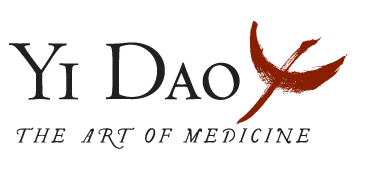As Chinese medicine practitioners, Zarig and I are often asked about dietary advice. Our response may come as a surprise to some of our patients. Here are some pointers that we regularly give:
There are 3 important aspects to a healthy diet: quality, variety and enjoyment.
Quality. Foodstuffs vary greatly in quality. As a general rule, go for the best quality of food you can afford, both money- and time-wise. Freshly cooked meals, with natural ingredients, are best.
Variety. Having different foods every day, with a great variety of grains, vegetables, meats, etc, will ensure you get a range of nutrients.
Enjoyment. Food should taste good! It is one of the great pleasures of life, important for your mental as well as your physical well-being.

Beyond that, we do not believe that there are any isolated foods that must be included or avoided in a healthy diet. The idea of a “superfood” is mostly a marketing term, and is not something we recognise in our experience. While there are aspects of diet that will depend on a person’s constitution and a person’s diet can be skewed towards their health, fundamental dietary rules apply to everybody.
Meat – to eat or not to eat?
In Chinese medicine we are not big fans of a vegetarian diet, as meat is full of nutrients which are important for good health. We usually recommend to regularly include some good quality, i.e. free-range, organic, meat in the diet, although we also appreciate that people may object to consuming meat for ethical or religious reasons.
How about food sensitivities and intolerances?
We regularly treat people who exclude a range of foodstuffs from their diet as these have caused problems in the past. While this alleviates the problem in the immediacy, over time it can become more and more restrictive. Apart from medical allergies, a healthy digestion should be able to process the full range of available foods. In other words, a food sensitivity is a sign that the digestion is not working optimally. We always recommend improving the digestion and then trying to reintroduce the foods to rebuild the body’s digestive ability.
Tips for a better digestion
Important factors to improve the digestion relate to looking at all the circumstances relating to eating, not just the diet itself. Restricting the quantity of food by having smaller meals is a great way of taking the pressure off the digestion. Also taking the time to eat, sitting properly, chewing well, not being hunched, will physically allow the digestive organs to work better.
Emotions are very important – for example in periods of stress, many people find that digestive problems can flare up. Learning to manage emotional triggers will have a direct impact on the digestion.
Water consumption is another important point – many people nowadays worry about being dehydrated, to the point that they are actually flooding their system with water by drinking a set number of litres every day. This dilutes digestive juices and can cause bloating and poor digestion. It is much better to drink to your thirst, and particularly to avoid too much fluid with a meal.
With thanks to JulieAnn Nugent-Head for initially introducing us to her Chinese Medicine perspective on diet.


